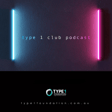
Episode 26: From Diagnosis to Determination: Olly Green’s Type 1 Journey and 220km Challenge
In this inspiring episode of the Type 1 Club Podcast, host Jacqui Kidman sits down with Olly Green, an 18-year-old from Melbourne who was diagnosed with Type 1 Diabetes during lockdown in 2020. Olly shares his powerful story — from the shock of diagnosis at age 14, navigating stigma and confidence, to finding his rhythm as an athlete and now setting an incredible goal: running 220km from Point Lonsdale to Portsea to raise awareness and funds for Type 1 Diabetes research.
This is a conversation about resilience, growth, and turning challenge into motivation. Ollie’s story is a must-listen for teens, parents, and anyone navigating Type 1.
💡 In This Episode You’ll Hear:
- Ollie’s diagnosis story during lockdown — and the sudden onset of symptoms
- The emotional and social challenges of being diagnosed as a teenager
- How stigma and confidence played into his journey of telling others
- His memorable supermarket hypo story (yes, involving an unpaid chocolate milk!)
- Lessons learned managing Type 1 while playing elite-level football
- The importance of routine, trial and error, and learning from mistakes
- Transitioning to the Omnipod pump and how it changed his management
- Preparing for a 220km run to raise $10,000 for Type 1 Diabetes research
- Advice he’d give to his younger self — and to other teens with Type 1
- His go-to hypo treatment (and a very strong opinion about red snakes 🐍😄)
🏃♂️ Support Ollie’s Run:
Ollie will be running from Point Lonsdale to Portsea (220km over 6 days, Nov 9–14) to raise funds for Breakthrough and Type 1 research.
🎯 Goal: $10,000
📲 Donate or follow his journey via Instagram: @OllyGreennn
(Link in bio for donations)
Further Resources:
Type 1 Foundation Website
Follow us on Instagram
Join the Facebook Group
If you'd like to share your story with our podcast listeners, please email: podcast@type1foundation.com.au
